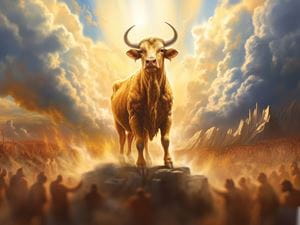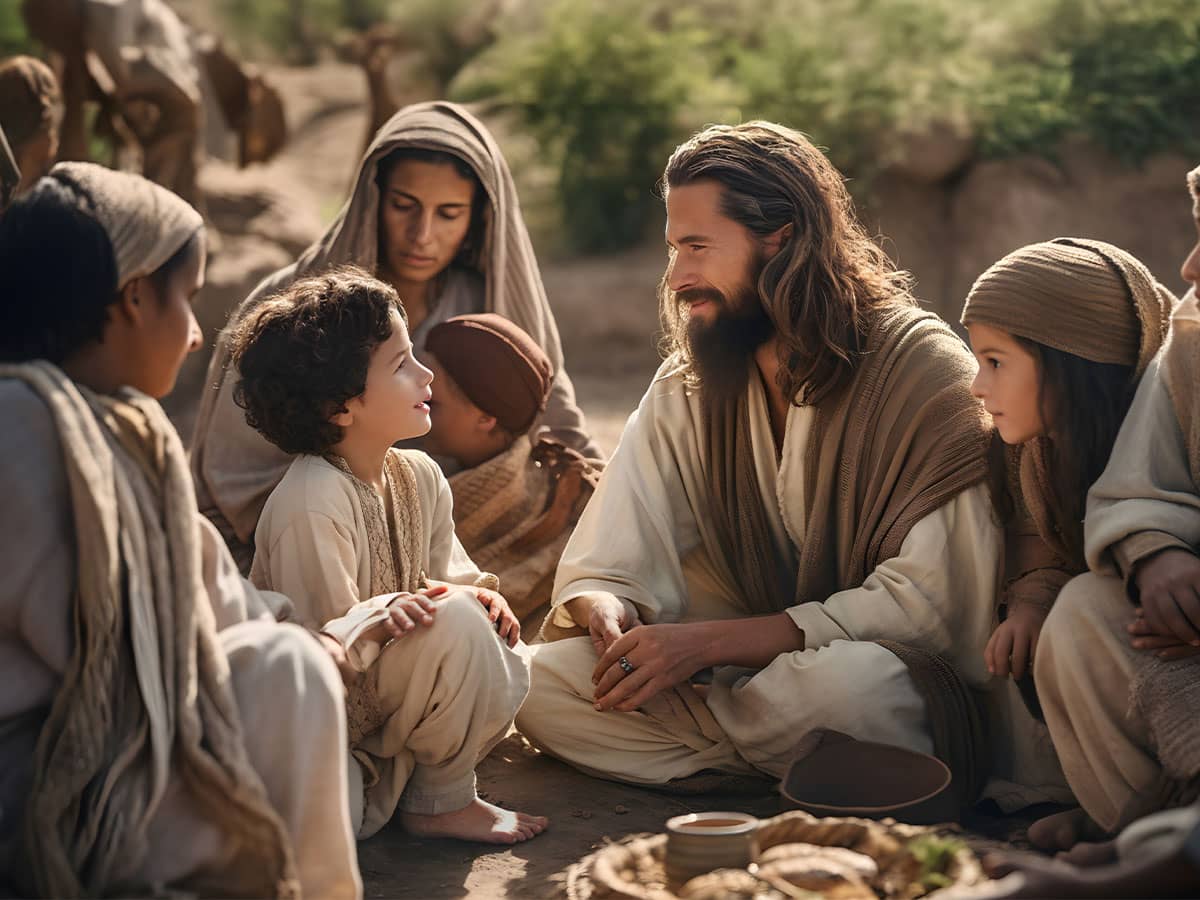
The Old Testament story about the golden calf is a cautionary tale that instructs us to obey God and warns us against worshiping any gods other than the one true God. The story describes the Israelites' sin, God's reaction to it, the punishment He inflicts on the people, and the lessons we should learn from it.
Beginning in Exodus 24, God instructed Moses to ascend Mount Sinai and receive the law and 10 Commandments. Leaving the Israelites behind, Moses obeyed and spent 40 days and nights with the Lord on the mountain.
But trouble was brewing at the foot of the mountain where the people were camped. Exodus 32 says they were becoming increasingly impatient for Moses to return. They went to his brother Aaron and asked him to fashion a god for them to worship.
The Golden Calf
The Israelites had been exposed to pagan idols in Egypt while they were enslaved, and in Moses' absence, they turned to something familiar. Some experts believe the Israelites wanted physical objects to help them feel closer to God or to honor Him. However, the Bible does not explain the Israelites' thinking.
What we know is that God's people turned to pagan worship despite having seen proof that the God of Moses was the one true God. They had witnessed the 10 plagues God unleashed on Egypt when Pharaoh defied Him over freeing the Israelites. They had seen the parting of the Red Sea as they fled the Egyptian army, which was chasing them, and they had gladly consumed the manna and quails God miraculously provided for their nourishment in the desert.
Yet, those miracles were not enough, and they went to Aaron to ask, "Come, make us gods who will go before us" (Exodus 32:1).
Aaron was Moses's brother and Israel's high priest, but his faith was weak. The Bible does not tell us what he was thinking, but it does say he asked for the people's gold jewelry, which they had taken from the Egyptians as they fled slavery.
Aaron melted the gold, created a golden calf from it, and built an altar to hold it.
Why create a calf? Bulls and calves symbolized strength and fertility and were traditional sacrifices at the time. Aaron's choice also may have been influenced by Apis, the Egyptian bull god, or one of the many other Egyptian gods represented by bulls.
At any rate, Aaron completed his work and announced a feast to God the following day. The people sacrificed burnt offerings, bowed down to the golden calf and danced, possibly as they had seen the Egyptians do. It's noteworthy that the tribe of Levi did not join in worshiping the golden calf.
God's Anger and Punishment
Enraged by the Israelites' behavior, God was ready to destroy the people. His anger was fueled by the people's idol worship and the fact that they had quickly turned away from Him and what He had commanded. In creating the idol, bowing down before it and offering sacrifices to it, the Israelites had broken the first of God's 10 Commandments: "You shall have no other gods before Me." (Exodus 20:3).
While the Lord's anger burned, Moses went down the mountain to the Israelites. As Moses reached the foot of the mountain, he saw the people dancing around the golden calf. He became so angry that he threw down the two tablets inscribed with the Ten Commandments and broke them.
Moses also melted the golden calf, ground it into powder, scattered it on water, and forced the people to drink it. He then demanded an explanation from Aaron and called those who stood for the Lord to come to him. The Levites came. Moses then commanded that "'each man strap a sword to his side. Go back and forth through the camp from one end to the other, each killing his brother and friend and neighbor.' The Levites did as Moses commanded, and that day, about three thousand of the people died." (Exodus 32:27-28).
The next day, Moses told the Israelites they had committed a "great sin," but he would go to the Lord and seek forgiveness. The Lord told Moses that He would blot the people who had sinned out of His book of life, and He would not go with the Israelites after the golden calf incident.
However, He did send an angel to lead them toward the promised land but also punished them by sending a plague.

